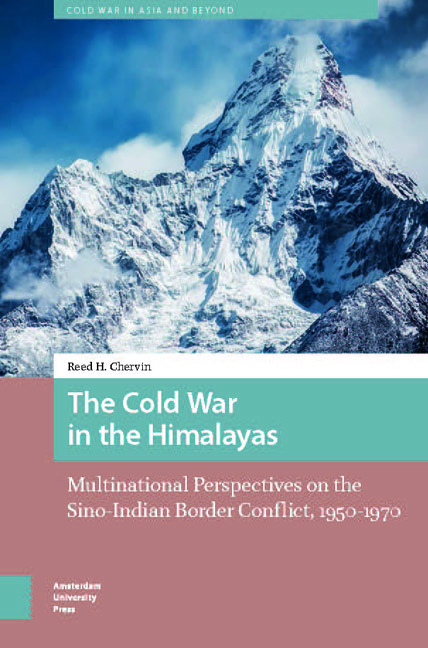 The Cold War in the Himalayas
The Cold War in the Himalayas 8 - Western Policies Toward South and Southeast Asia , Plus Pakistan’s Response, 1962–1970
Published online by Cambridge University Press: 16 April 2024
Summary
Abstract
Chapter 8 considers how Western countries aided India in the post-1962 era and how India's nemesis, Pakistan, reacted. The first two sections argue that Commonwealth countries had an evenhanded aid policy toward India and Pakistan, with Britain and Canada suspending aid to both during the 1965 Indo-Pakistani War. The next section addresses U.K. engagement with the Himalayan kingdoms. Section four similarly deals with Commonwealth engagement with Southeast Asia. Section five analyzes the U.S.-Tibetan relationship after 1962. Sections six and seven show how the U.S. government evaluated the Chinese threat to the Himalayan kingdoms and Burma. The final section discusses Pakistan's sense of betrayal at the West's aiding India and turn toward China.
Keywords: U.S.-Tibetan relationship, Pakistan, aid, Himalayan kingdoms, Burma, 1965 Indo-Pakistani War
As India assumed a more assertive posture at the frontier, Western countries became more interested in stabilizing this region. Former U.K. Prime Minister Harold Macmillan put it best when he proclaimed in November 1965 that Britain got involved in the Sino-Indian War not only to help a Commonwealth partner under attack, but also to fight in the “battle for Asia.” This battle embodied a struggle between Indian democracy and Chinese communism. Macmillan concluded, “If I once said that Britain's frontier is on the Himalayas, that frontier is perhaps not so much a military frontier, it is economic, indeed it is more moral and philosophical.” With democracy in Asia seemingly at stake, Britain, members of the Commonwealth, and the United States continued to provide military assistance and moral support to India and its neighbors at the frontier in the years following the 1962 war. Via this support, assessments of Chinese military capabilities, and overtures to Pakistan, the West pursued a united front to stymie what they saw as Chinese expansionism. Be that as it may, Commonwealth powers and the United States held divergent views on backing Tibetan rebels.
Pakistan bristled at Western assistance to India. Pakistan and India had been on poor terms since partition in 1947, so it is not surprising that the Pakistani government opposed aid to India.
- Type
- Chapter
- Information
- The Cold War in the HimalayasMultinational Perspectives on the Sino-Indian Border Conflict, 1950-1970, pp. 231 - 270Publisher: Amsterdam University PressPrint publication year: 2024
